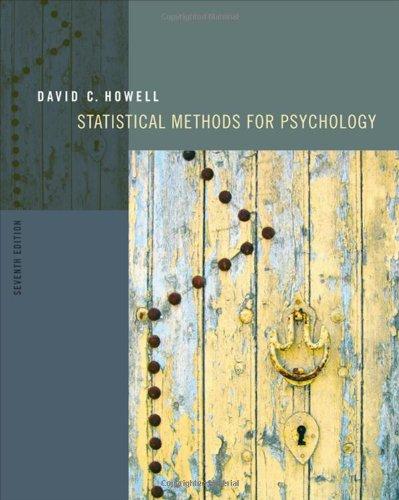It is useful to examine the effects of measurement reliability on the outcome of a regression problem.
Question:
It is useful to examine the effects of measurement reliability on the outcome of a regression problem. In Exercise 15.24 the variable PVLoss was actually a reasonably reliable variable.
However, for purposes of illustration we can manufacture a new, and less reliable, measure from it by adding a bit of random error to PVLoss.
a. Create a new variable called UnrelLos with a statement of the form UnrelLos 5 PVLoss 17.5 3 “random.” [Here “random” is a random-number function available with most statistical programs. You will need to check the manual to determine the exact form of the statement. I used a multiplier of 7.5 on the assumption that the randomnumber function will sample from an N(0, 1) population. Multiplying by 7.5 will increase the standard deviation of UnrelLos by 50% (see the variance sum law). You may want to play with other constants.]
b. Now repeat Exercise 15.24 using UnrelLos in place of PVLoss.
c. What effect does this new variable have on the contribution of the perceived vulnerability of loss to the prediction of DepressT? How has the regression coefficient changed?
How has its standard error changed? How does a test on its statistical significance change? What changes occurred for the other variables in the equation?
Step by Step Answer:







